Cashew growing places in the world - Top 10 countries growing the most cashew trees in the world
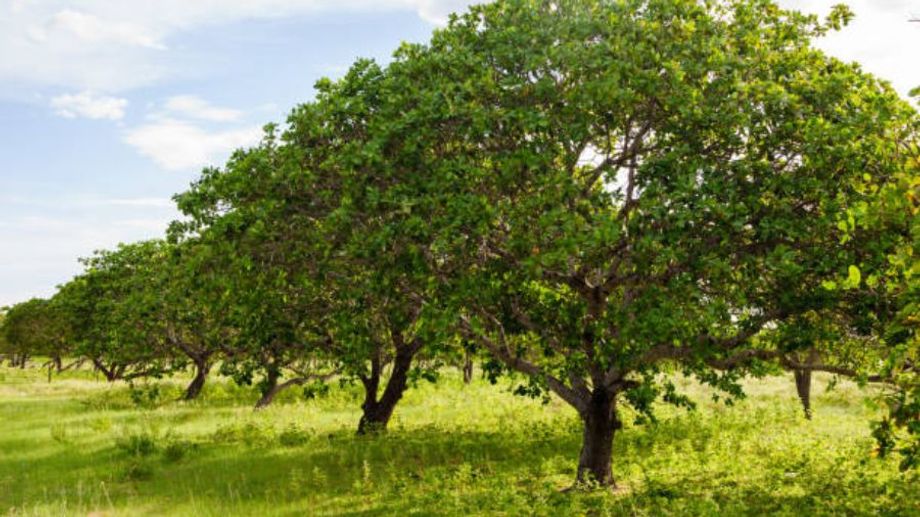
Mục lục
The cashew tree (Anacardium occidentale) is a tree native to the tropical regions of Latin America. Cashew nuts, which are obtained from the fruit of this tree, are not only a delicious food source but also contain many nutrients that provide many health benefits to the body. Let's find out which countries grow the most cashew trees in the world and the importance of this tree!
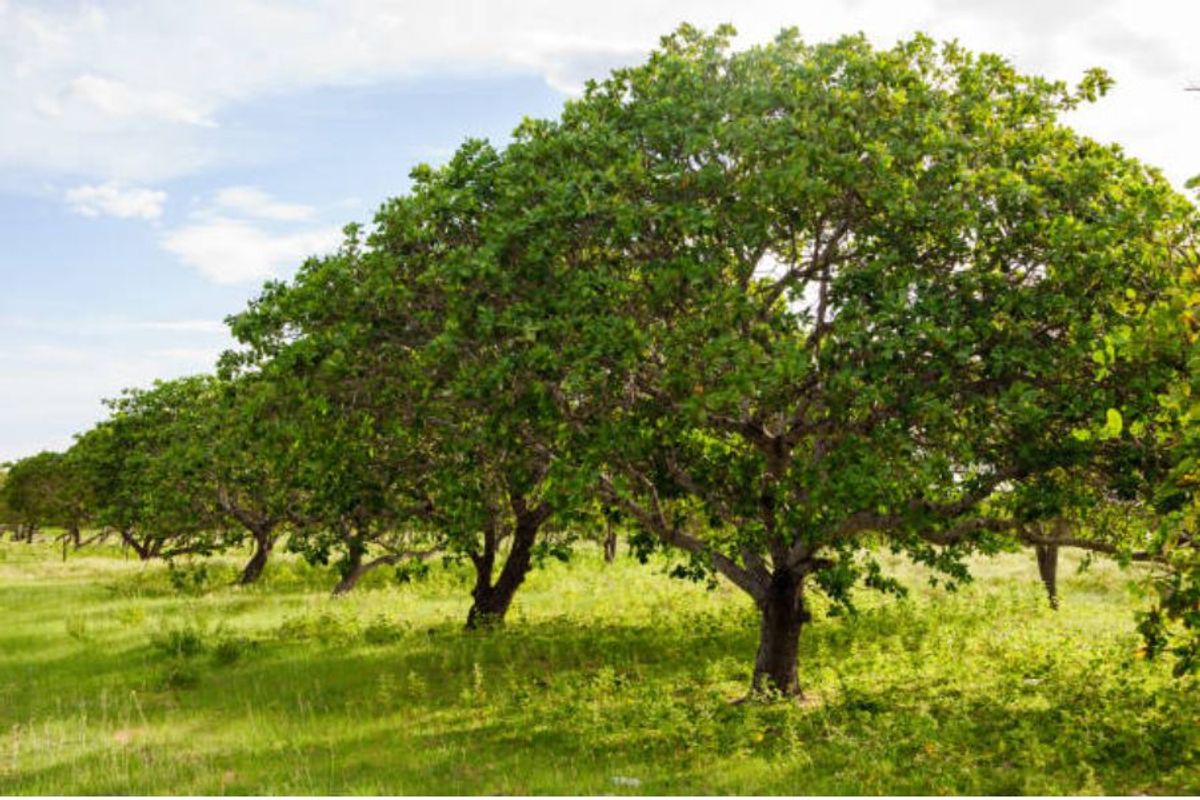
Cashew Growing Countries in the World
Cashew nuts are a type of nut that originates from many countries around the world. Here is a list of some of the countries that produce cashew nuts:
India: India is one of the largest producers of cashew nuts in the world. The tropical climate here is favorable for growing cashew trees.
India: India is one of the largest producers of cashew nuts in the world. The tropical climate here is favorable for growing cashew trees.
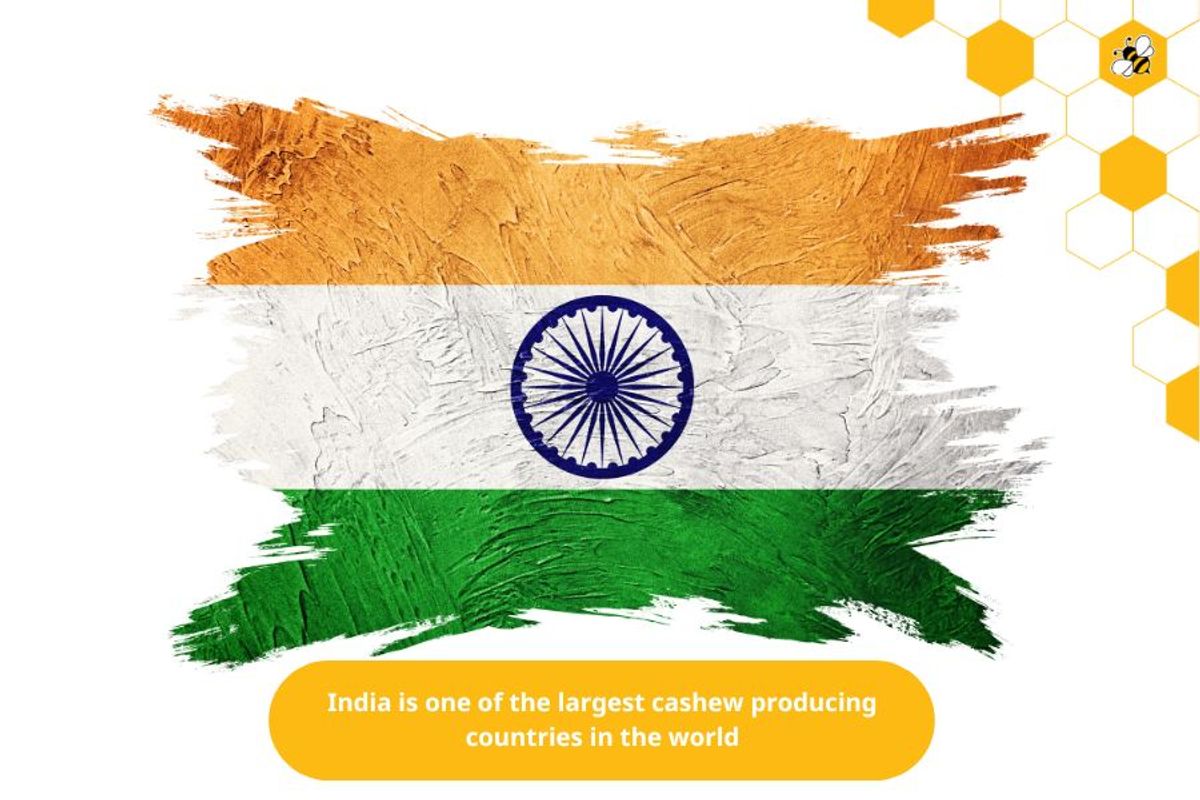
Brazil: Brazil is also an important cashew producing country. Cashews from Brazil are often exported to many parts of the world.

Malaysia: Malaysia also has a significant production of cashew nuts. The warm climate and suitable soil have made Malaysia one of the important sources of cashew nuts.
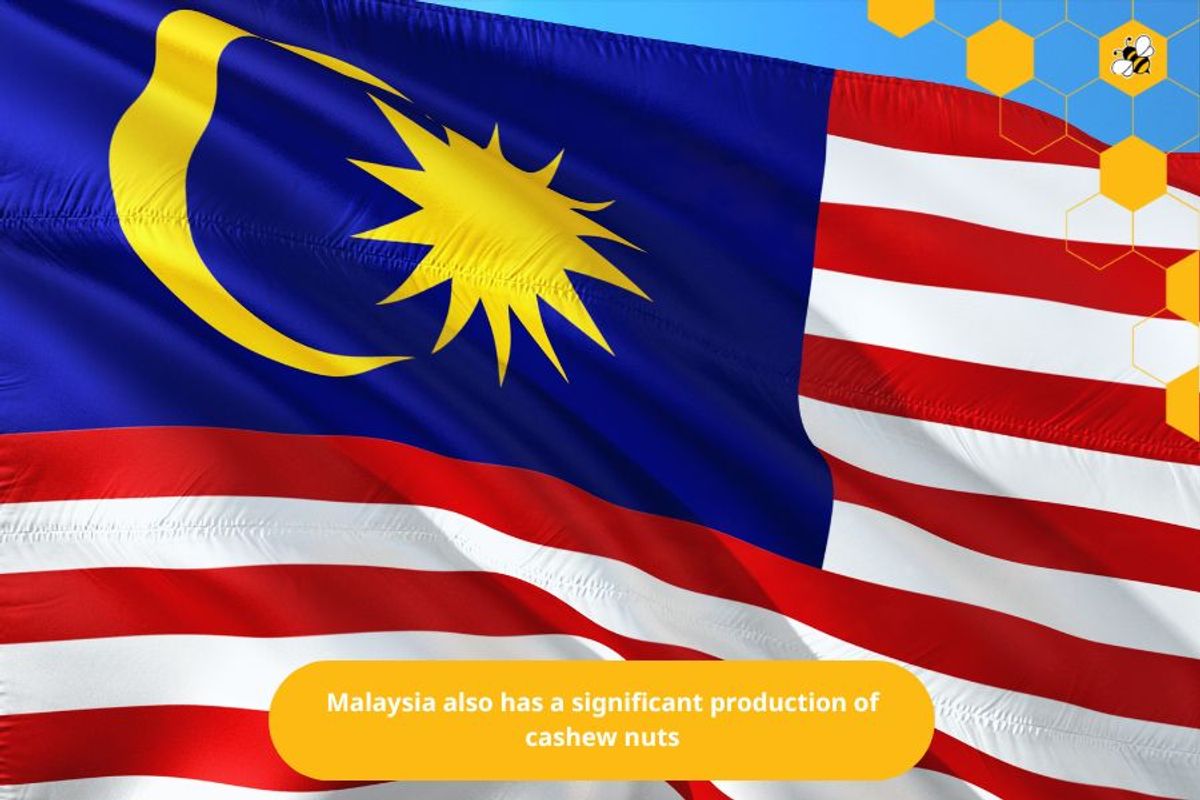
Vietnam: Vietnam is one of the world's largest exporters of cashew nuts. Companies such as Duy Linh Co., Ltd., Long Son Food Co., Ltd., and Hanfimex Vietnam Joint Stock Company have contributed to Vietnam's cashew exports.
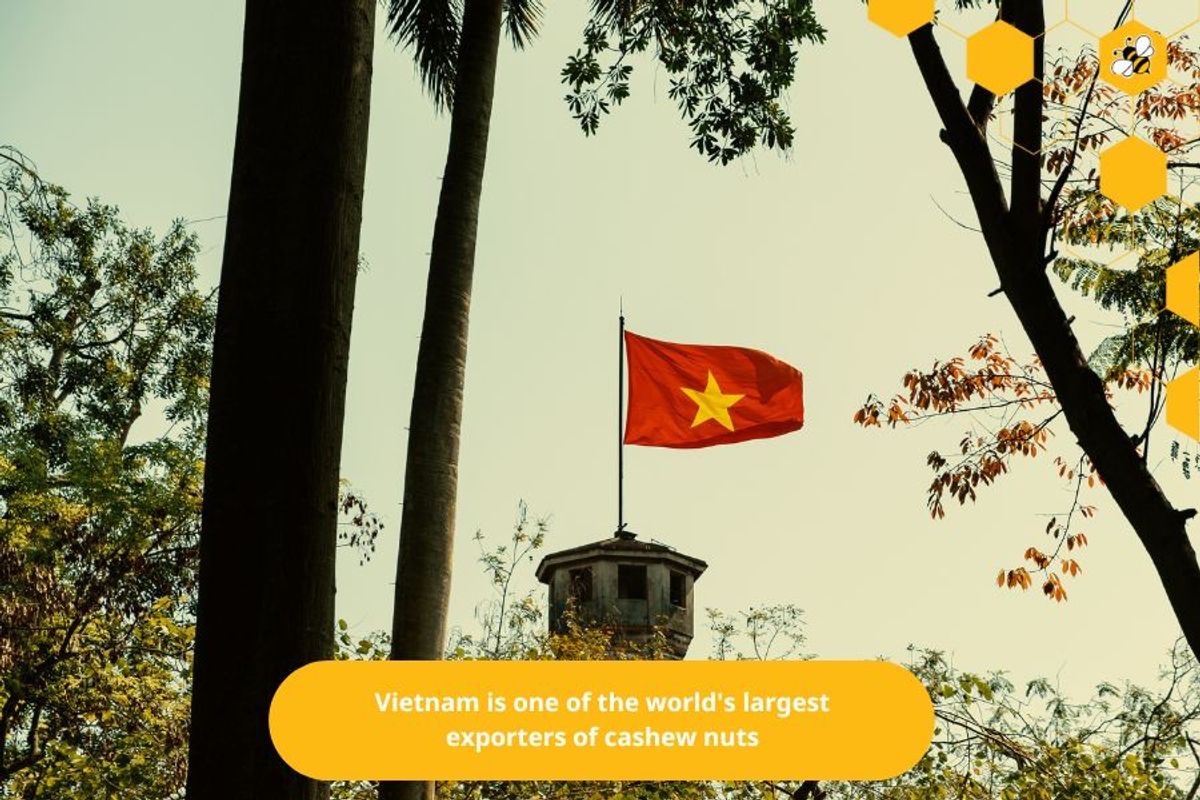
Sri Lanka, Mozambique, Philippines, Tanzania, Nigeria, and Kenya are also notable cashew-producing countries.
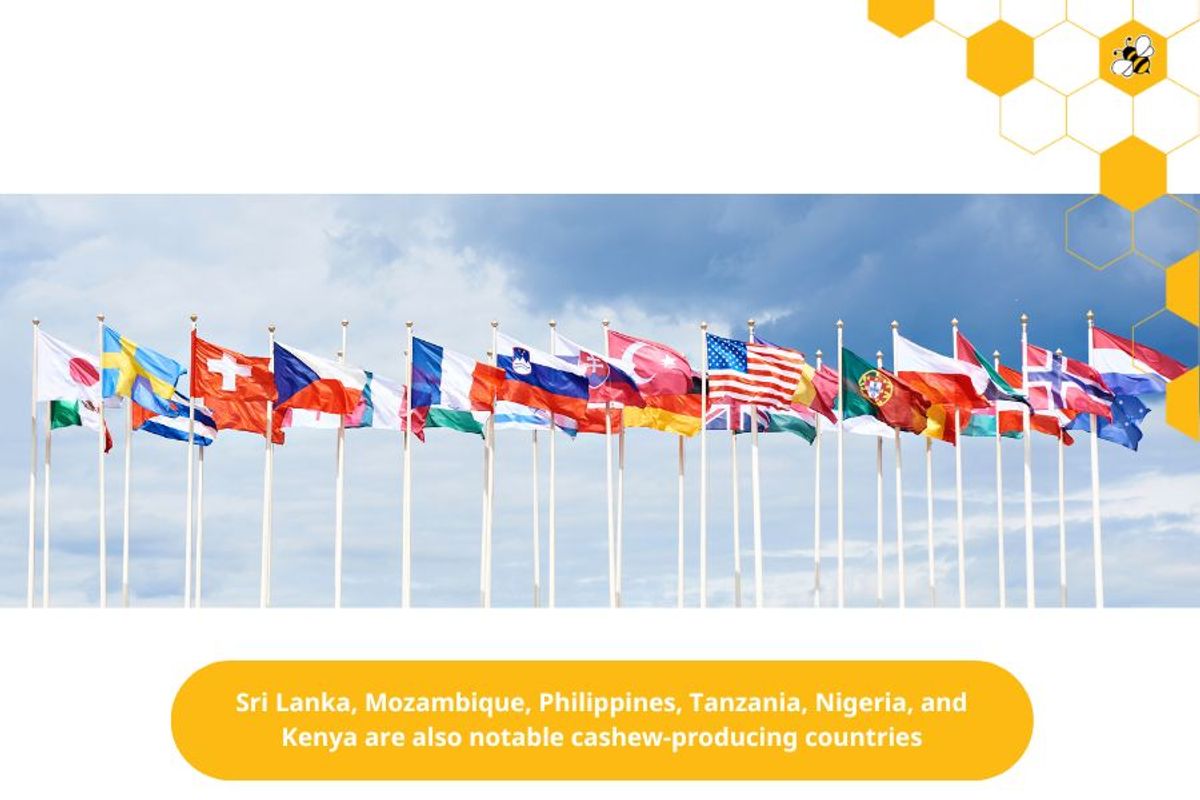
Remember, cashews are not only delicious but also nutritious, containing healthy fats and antioxidants that help protect your health. If you like cashews, try adding them to your daily diet!
Top 10 Cashew Growing Countries in the World
Here is a list of the top 10 cashew-growing countries in the world:
China: China owns 7% of the world's arable land, but still feeds 22% of the world's population. In 2015, China accounted for over 50% of the total global cashew trade value (about 5 billion USD) and held the world's leading position in cashew nut export output.
China: China owns 7% of the world's arable land, but still feeds 22% of the world's population. In 2015, China accounted for over 50% of the total global cashew trade value (about 5 billion USD) and held the world's leading position in cashew nut export output.

United States: The United States is one of the major cashew producing countries. This country has a developed agriculture and is an important contributor to the agricultural export market.

Brazil: Brazil is also one of the leading countries in cashew production. The land and climate in Brazil are very favorable for growing cashews.
India: India is one of the leading countries in the cashew industry. In 2015, India held the world's leading position in exporting cashew kernels.
Russia: Russia also has a large area of cultivated land and grows cashews to meet domestic and export demand.
India: India is one of the leading countries in the cashew industry. In 2015, India held the world's leading position in exporting cashew kernels.
Russia: Russia also has a large area of cultivated land and grows cashews to meet domestic and export demand.

France: France is one of the European countries that produce cashews. Although not among the top in the world, France still contributes significantly to the market.

Mexico: Mexico also has significant cashew production and exports it to many countries.
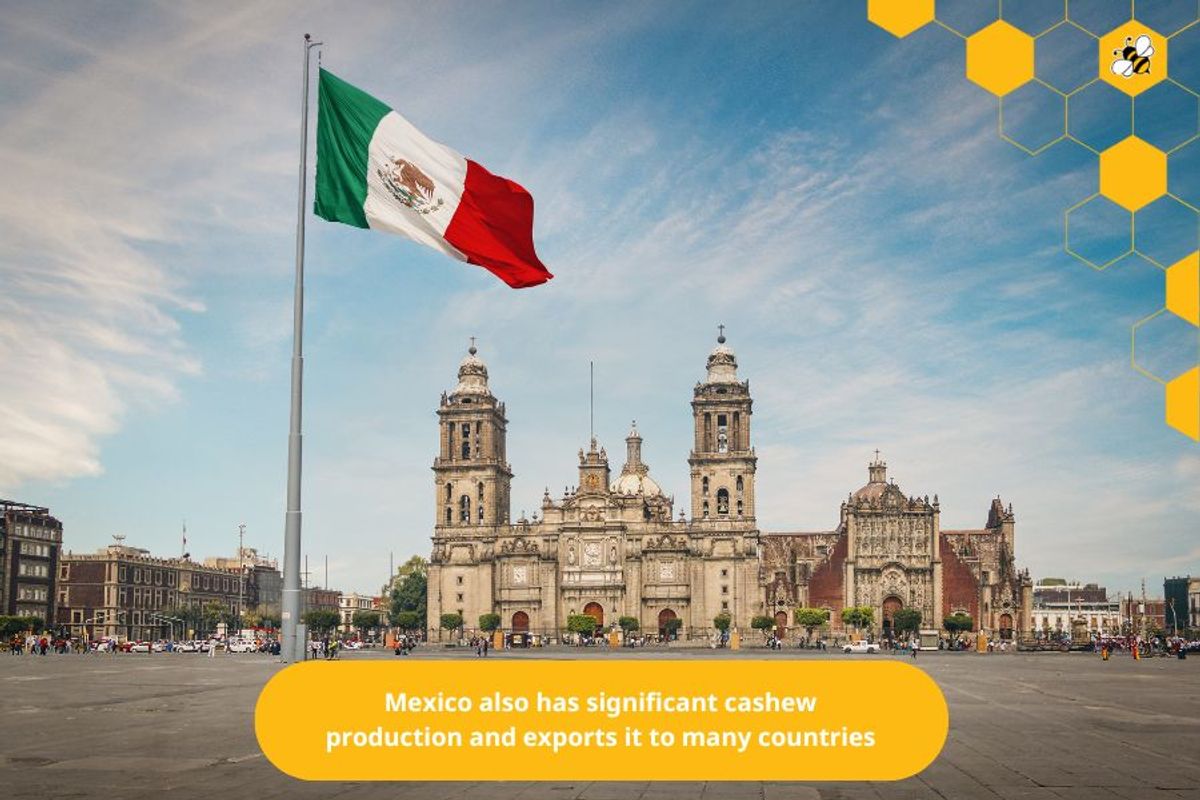
Japan: Japan not only consumes cashews but also produces a certain amount to meet domestic demand.

Germany: Germany also grows cashews and participates in the export market.
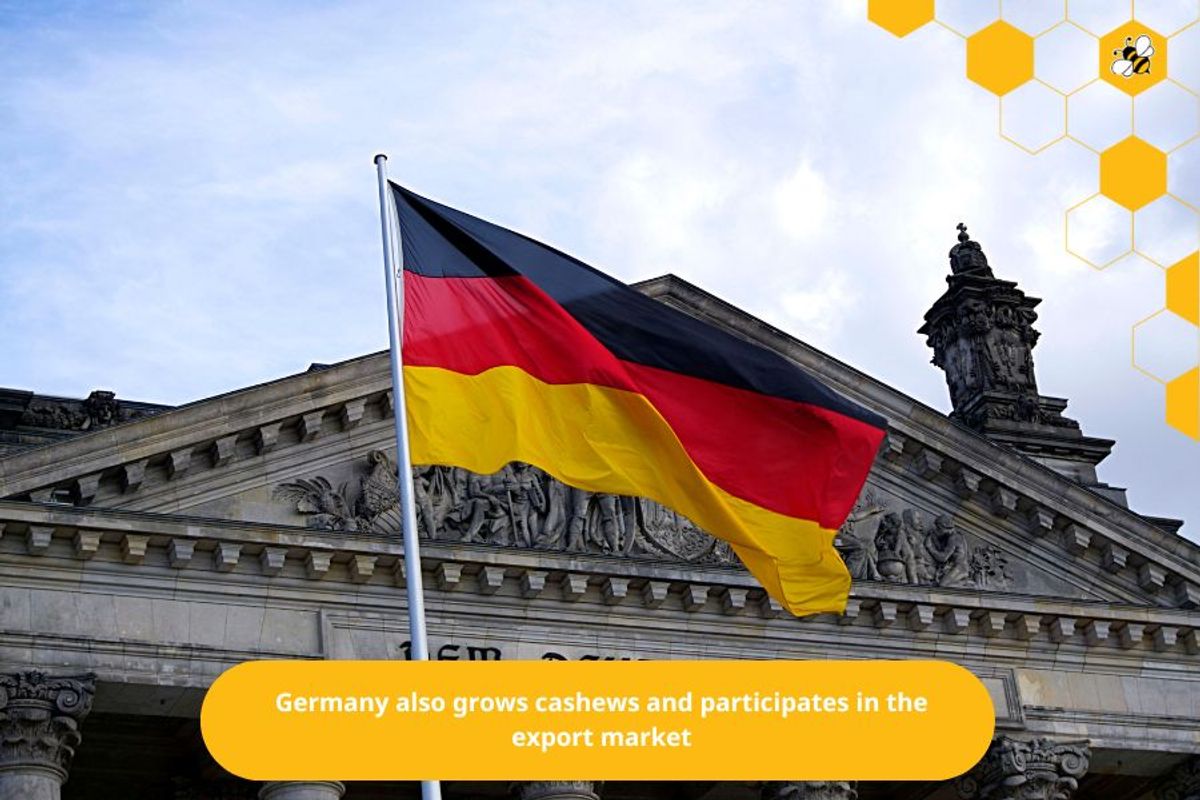
Türkiye: Türkiye is also one of the countries that produce cashews and export them to the world.
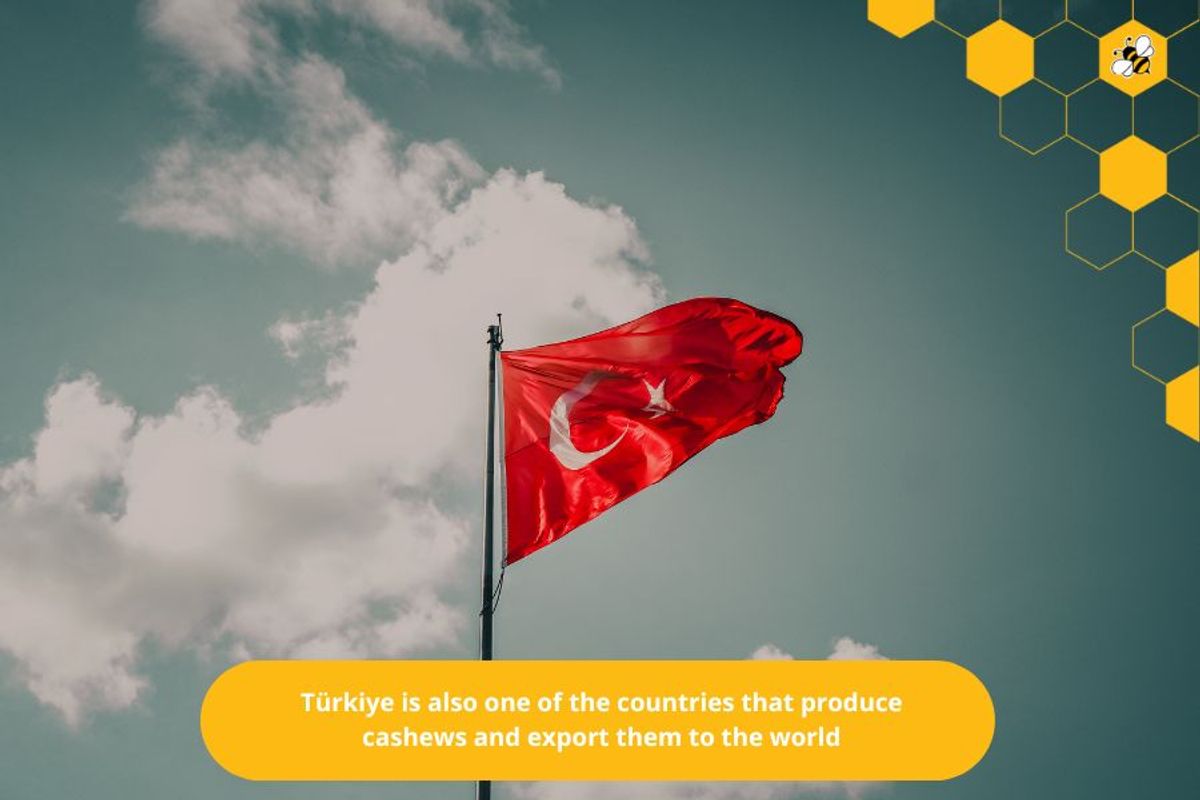
In addition, Vietnam is also a famous country for cashew production. In 2015, Vietnam held the world's leading position in cashew nut exports and had a market share of over 50% of the total global cashew nut trade value. Cashews are grown a lot in the southern mountainous provinces such as Dak Lak, Dak Nong, and Binh Phuoc.
In which provinces and cities are cashews grown in Vietnam
In Vietnam, cashews are grown in many provinces and cities across the country. Below are some provinces famous for cashew nut production:
Binh Phuoc: Binh Phuoc is one of the largest provinces in cashew nut production in Vietnam. This land has favorable natural conditions for growing cashews.
Dong Nai: Dong Nai is also a province with a large cashew-growing area. Districts such as Xuan Loc, Long Thanh, and Nhon Trach are famous cashew-growing areas.
Binh Thuan: Binh Thuan also has a significant cashew growing area. The warm climate and suitable soil have helped this province become one of the important sources of cashews.
Binh Phuoc: Binh Phuoc is one of the largest provinces in cashew nut production in Vietnam. This land has favorable natural conditions for growing cashews.
Dong Nai: Dong Nai is also a province with a large cashew-growing area. Districts such as Xuan Loc, Long Thanh, and Nhon Trach are famous cashew-growing areas.
Binh Thuan: Binh Thuan also has a significant cashew growing area. The warm climate and suitable soil have helped this province become one of the important sources of cashews.
Ba Ria - Vung Tau: This province also has a large cashew-growing area, especially in the Chau Duc district.
Gia Lai: Gia Lai is located in the Central Highlands, one of the important cashew-producing areas.
Dak Lak: Dak Lak also has a significant cashew growing area.
Kon Tum: Kon Tum is also a province in the Central Highlands famous for growing cashews.
Khanh Hoa, Binh Dinh, Quang Ngai: The Central provinces also participate in cashew production.
Lam Dong: Lam Dong in the South also has a cashew-growing area.
Lam Dong: Lam Dong in the South also has a cashew-growing area.
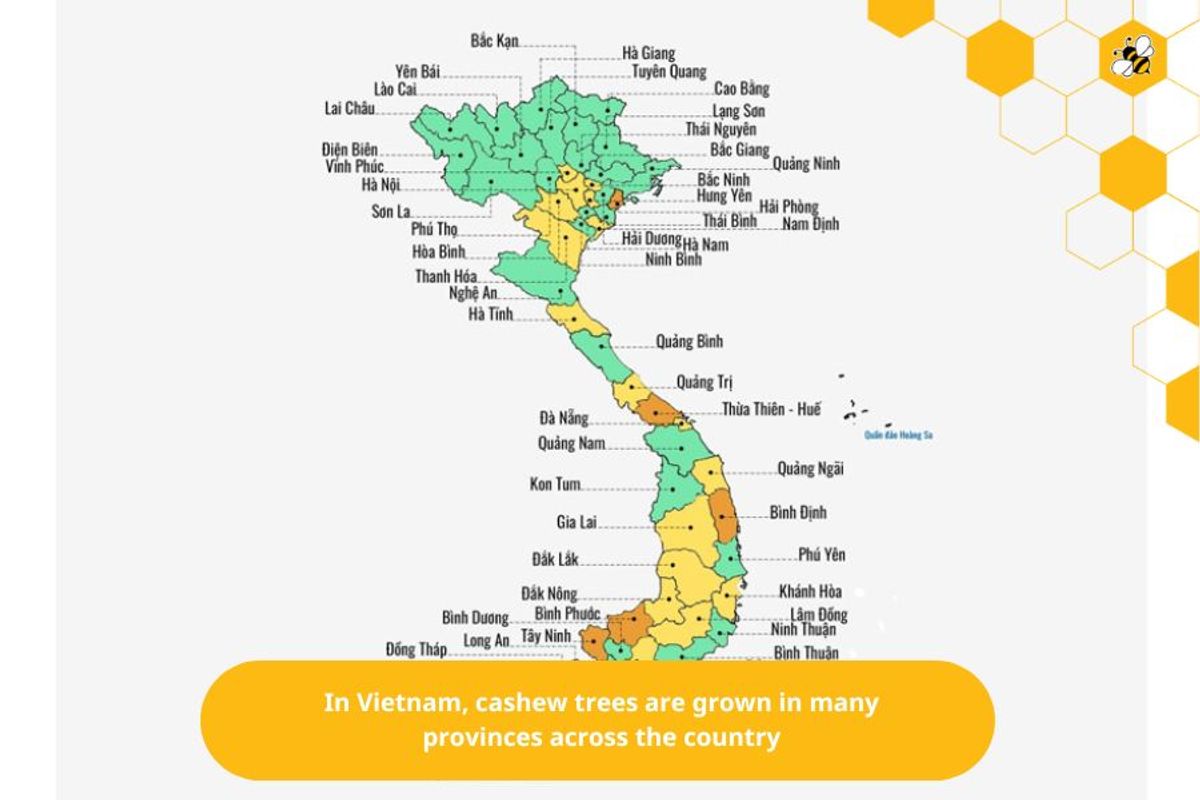
Remember that cashews are not only a popular and healthy food but also an important contributor to the economies of many countries.
Summary
In this article, we learned about the countries that grow the most cashews in the world. Cashews are not only an important source of income but also provide health benefits and create jobs for many people. Let's protect and develop this resource to ensure sustainable development for the future!